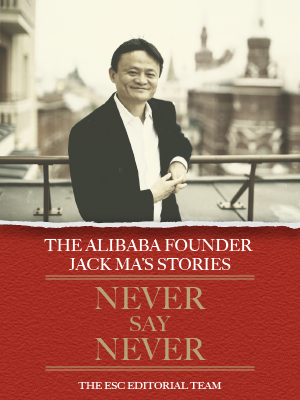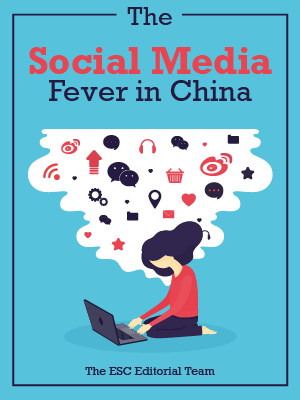Ecommercestrategychina.com uses cookies and other technologies to provide you a better browsing experience. You can get more information regarding the use of cookies, or decline it whenever by clicking Privacy Policy. By using this site or clicking “Okay”, you give us the consent to the use of cookies.
OKAY
Ant Financial has replicated nine new “Alipay” offerings in Asia and created localised e-wallets with partners in India, Thailand, the Philippines, Indonesia, South Korea, Malaysia, Pakistan, Bangladesh and Hong Kong.
The article includes three parts:
The overseas expansion of Ant Financial
In March 2015, Jack Ma demonstrated for the first time the immature mobile payment technology in Hanover, Germany. Both Chinese and American e-payment giants know that mobile payment is the way of the future. PayPal even intended to get the British out of their traditional wallets by 2016. But Jack Ma and Ant Financial, the parent company of Alipay, decided to dominate the Asian market first, rather than compete with their American counterparts in developed countries where the smartphone was more common.
Three years ago, Ant Financial invested in Paytm, an Indian mobile payment company, and began its global strategy of local e-wallets. Due to the large Indian population, Paytm's user base has grown from 25 million to 250 million due to the aggressive expansion of Ant Financial’s business. Whether in India, Thailand or Indonesia, Ant Financial has sought to capitalise on these potential and untapped markets.
Understand the usage scenarios of mobile payment
There are many people who ask what term "scenario" on the Internet really means. For example, Alipay, born in the PC era, was created to meet the payment needs when users shop online to solve the trust issue between buyers and sellers. This is a scenario. WeChat Lucky Money is a scenario on a mobile device that allows a large number of WeChat users to bind bank cards and activate WeChat payments in a very short time. Tencent's goal is to enable users to send New Year lucky money to relatives and friends through the mobile phone. Unexpectedly, Tencent Tenpay (also known as WeChat Pay), which was originally in a weak position, can compete with Alipay in the Chinese market through the Lucky Money feature.
As the electronic payment markets became extremely competitive in the Chinese domestic market, Ant Financial exported this product concept of the scenario to Southeast Asia.
In 2017, the per capital GDP of the Philippines was less than $3,000, about one-third of China’s. However, the Philippines have a typical consumer economy, with consumption accounting for 70% of GDP. Most private-sector companies in the Philippines have a salary system that pays their employees every two weeks or once a week. This salary system has influenced the attitude of the Filipinos towards money management and consumption. Therefore, ordinary Filipinos are more willing to spend money, which leads to a high demand for micro-credits.
Traditional big banks and financial institutions can not meet these large and fragmented demands, which gives other payment players a market opportunity. Similar to the development of Alipay, Mynt used GCash e-wallet to meet the daily needs of Filipino users for micro-payments. Then it developed new businesses such as transfers, micro-loans and credit investigations and gradually became a comprehensive Fintech company. Not only in Southeast Asia. Ripple, founded in 2012 and headquartered in San Francisco, is dedicated to offering a frictionless experience to send money globally using the power of blockchain. Ripple blockchain is expected to outperform SWIFT from the cross-border payment industry. (Suggested reading: 200 financial institutions now use Ripple XRP from MintDice)
Back to the Phillippine market, there are two reasons for mobile payment to grow. For one thing, the use of mobile phones in the Philippines is almost complete, with smartphones accounting for around 40 percent. Another factor is the very high population growth in the Philippines, with about 60 percent of the population under the age of 23, so most Filipinos will be more open-minded about new things like mobile Internet.
Contrary to the needs of users in the Philippines, TnGD (Touch 'n Go Digital), a local e-wallet created by Ant Financial in Malaysia, targets users in a variety of traffic scenarios. TnG card-swiping signs can be found throughout Kuala Lumpur's public transport, underground, railway, motorway and other locations.
Difficulties in localisation
Two or three years ago, when Chinese Internet companies and new economic capital had just targeted Southeast Asia, it was assumed that the population of Southeast Asia would become another big market. So far, however, only capital giants like Alibaba, Tencent, Didi and ByteDance continue to expand their business in these markets. Not only do they have the money, they can also improve the technology, products, markets, operations and even the management of local companies. However, there are still many problems in the localisation process.
In the Philippines, for example, the population’s widespread cash habit is a major challenge to technological change. It is estimated that 90 percent of Filipinos have no credit history, 66 percent have no bank accounts and 34 percent of city dwellers do not even have a bank branch nearby.
The most difficult thing for Chinese companies is probably integration with local employees. In the past year, Ant Financial has sent more than 30 or 40 employees in technical, product, operation and marketing positions to Mynt, a local e-wallet company in which Ant Financial has invested. They have worked with local staffs to operate the company's largest e-wallet GCash in the Philippines. "It's difficult to manage the local staffs," says Ant Financial’s Global Localisation Director in the Philippines. "Filipino colleagues enjoy their lives and don’t like hard work. They can’t understand why the Chinese colleagues work so hard. Chinese colleagues and I can only be responsible for our own behaviour and we hope that we can help convince our Filipino colleagues that the Internet market is changing rapidly."
The nine local "Alipay" companies all operate a critical minority shareholding structure, a model that Ant Financial calls "overseas shipbuilding". It is expected that commercial benefits and access to the Southeast Asian market will be achieved at an early stage of development, thereby achieving long-term goals.
No matter how strong the Chinese Internet giants are in the Chinese market, they have a different status in the overseas market. In order to enter the market with great potential in Southeast Asia, Ant Financial should carefully consider how to maintain healthy competition and cooperation with the locals. In addition, the policies of each country are different, and national regulators who have the power to approve and issue financial licenses will also pay attention.
Please Login to add comments.

$9.99 $19.98

$9.99 $19.98
By GRLpGpAG December 10th, 2023
555
By GRLpGpAG December 10th, 2023
555
By GRLpGpAG December 10th, 2023
555
By GRLpGpAG December 10th, 2023
555
By GRLpGpAG December 10th, 2023
555
By GRLpGpAG December 10th, 2023
mO0BxEQk
By GRLpGpAG December 10th, 2023
-1 OR 2+174-174-1=0+0+0+1 --
By GRLpGpAG December 10th, 2023
-1 OR 2+235-235-1=0+0+0+1
By GRLpGpAG December 10th, 2023
-1' OR 2+514-514-1=0+0+0+1 --
By GRLpGpAG December 10th, 2023
-1' OR 2+524-524-1=0+0+0+1 or 'GIUjJscm'='